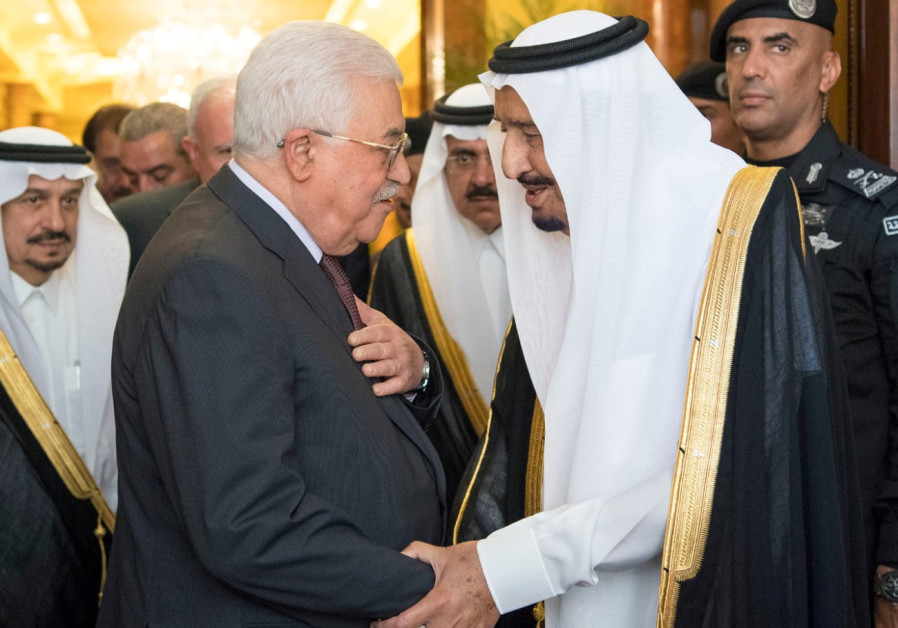Unless domestic reaction becomes unexpectedly explosive, Riyadh, Cairo and Amman can be expected to confine their responses to verbal missives that will soon subside.

If the Palestinians are counting on a strong response from Arab states if the Trump administration recognizes Jerusalem as Israel’s capital, they are likely to be disappointed.
Palestinian Foreign Minister Riyadh Malki called Sunday for an emergency meeting of the Arab League amid US media reports that US President Donald Trump is going to deliver a speech on Wednesday in which he will recognize Jerusalem as Israel’s capital.
Malki said the meeting would discuss “necessary steps regarding this irresponsible American measure.”
But the bitter reality for the Palestinians is that key Arab countries – Saudi Arabia, Egypt and even Jordan with its Palestinian majority and role as custodian of Jerusalem holy sites – are simply too dependent on US goodwill to get into a real row with the Trump administration. This is a case where each of their national interests trumps Arab solidarity.
Unless domestic reaction becomes unexpectedly explosive, Riyadh, Cairo and Amman can be expected to confine their responses to verbal missives that will soon subside.
“They will at least pretend to be objecting vociferously. But as long as he doesn’t move the embassy, they will put up with it after a few days of protesting,” said Gabriel Ben-Dor, a Middle East specialist at the University of Haifa. “The moderate Arab states will understand this is a compromise for Trump between his commitments and the practical realities. They’ll protest vocally, but that’s all.”
Given close Saudi-US ties, Riyadh may even be expected by Washington to temper the anger of Palestinian Authority President Mahmoud Abbas over the step, according to Brandon Friedman, a Saudi specialist at Tel Aviv University’s Dayan Center.
“If the rumors are true about tight US-Saudi coordination and a back channel between Crown Prince Mohammed Bin Salman and [Trump adviser] Jared Kushner, the Saudis may be expected to reach out to the Palestinian Authority and to manage Abbas,” he said. “One imagines that at the beginning there will be a lot of aggressive rhetoric among the Palestinians if the US goes ahead with this. But if the US coordinates with the Saudis, it could be their job to reassure the Palestinians to get them to back away from the most provocative things they could do and to manage them. But that will be a tall order.”
The Saudis can be expected to put their own strategic interests before the Palestinian issue, Friedman said.
And their main strategic interest is pushing back against what they perceive as Iranian expansion in the region – be it in Lebanon, Iraq, Yemen or Syria. For this, they need Washington, and they are hoping the Trump administration will take a more combative posture toward Iran than its predecessor. This need is more important to them than tangibly backing the Palestinians in a dispute with Washington.
Still, Friedman said, “It is way too early to say the Saudis will throw the Palestinians under the bus. To say that, we need to know more about the American step – what it means and how it affects any final status agreement.”
Jordan’s response will likely also be a function of its dependence on the US.
Jordan Times columnist Daoud Kuttab said in a phone interview from Amman that the US recognizing Jerusalem as Israel’s capital would likely trigger demonstrations called by professional unions, parties and the Muslim Brotherhood. Parliament can be expected to make a very strong statement, he added.
But beyond issuing its own statement, there is not much the palace can do, Kuttab said.
“I don’t think they can do much about the US because they need the US for financial support,” he said. “They can make clear it’s not conducive to peace and that as custodian of the holy places, Jordan will oppose it.”
Jordan received $1.4 billion in aid in 2017.
Kuttab said the fact that the US Embassy in Israel is not being moved and the fact that the Israel Embassy in Amman, a magnet for demonstrations, is closed may temper the protests.
“People look for what is actionable rather than statements,” he said. “The fact that it looks like the embassy move is being postponed means the US is giving lip service, though it is a violation of international law, its own laws and its own commitment.”
As reported by The Jerusalem Post
